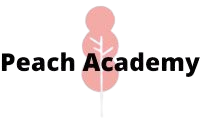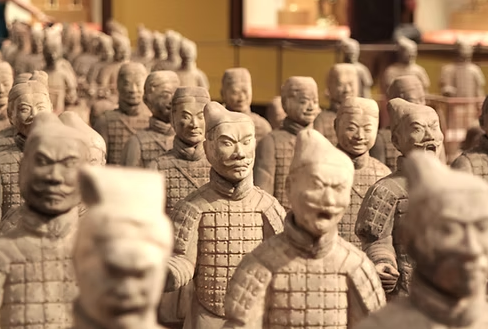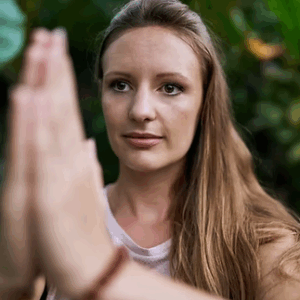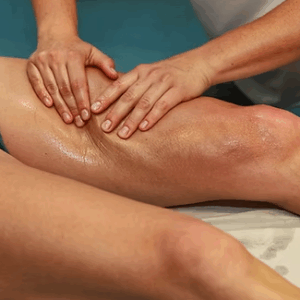Description
Program Duration: 2 Years (4 Semesters)
Total Credit Hours: 60–65
Delivery Mode: Online
Credential Awarded: Associate of Science (AS) in TCM Foundations
🎯 Program Objectives
Graduates of this program will be able to:
-
Demonstrate foundational knowledge of Traditional Chinese Medicine theory and practice.
-
Understand the use of herbal medicine, acupuncture, and other TCM modalities.
-
Apply basic diagnostic techniques such as tongue and pulse analysis.
-
Recognize the philosophical and cultural roots of TCM, including Taoist and Confucian influences.
-
Integrate holistic approaches to health and wellness based on Yin-Yang and Five Element Theory.
📘 Year 1: Foundations and Core Concepts
🔹 Semester 1
-
Introduction to Traditional Chinese Medicine (TCM)
Credits: 3
Course Description:
An overview of the principles and historical development of TCM, including Yin-Yang, Qi, and the Five Elements.
Modules:-
History and Philosophy of TCM
-
Concept of Qi, Jing, Shen
-
Yin-Yang Theory
-
Introduction to the Five Element Theory
-
-
Human Anatomy & Physiology for TCM Practitioners
Credits: 4
Course Description:
Basic anatomy and physiology from a Western biomedical perspective, focused on systems relevant to TCM modalities.
Modules:-
Introduction to Organ Systems
-
Musculoskeletal System
-
Nervous and Circulatory Systems
-
Integration of A&P with Meridian Pathways
-
-
Chinese Medical Terminology & Pinyin
Credits: 3
Course Description:
Introduces students to Chinese language basics, Pinyin romanization, and important TCM terms.
Modules:-
Basic Mandarin & Pinyin
-
Key TCM Terms (e.g., Zang-Fu, Jing-Luo)
-
Diagnostic Vocabulary
-
Communication for Clinical Practice
-
-
Yin-Yang and Five Element Theory
Credits: 3
Course Description:
Deep dive into the two foundational philosophical systems of TCM, including clinical applications.
Modules:-
Interrelationships of Yin and Yang
-
Five Elements in Nature & the Body
-
Cycles: Sheng, Ke, Cheng, and Wu
-
Emotional and Seasonal Correspondences
-
🔹 Semester 2
-
Zang-Fu Organ Theory
Credits: 3
Course Description:
A study of the functional organ systems of the body as understood in TCM.
Modules:-
Introduction to Zang (Yin) and Fu (Yang) Organs
-
Organ Relationships and Functions
-
Pathological Manifestations
-
Clinical Case Studies
-
-
Meridian and Acupoint Theory I
Credits: 3
Course Description:
Covers the basic channel (Jing-Luo) systems and major acupuncture points.
Modules:-
12 Primary Channels
-
Du and Ren Channels
-
Introduction to Acupoints
-
Energetic Flow and Therapeutic Functions
-
-
Chinese Herbal Medicine Foundations I
Credits: 3
Course Description:
An introduction to herbal properties, classifications, and energetics.
Modules:-
Nature, Taste, and Direction of Herbs
-
Categories (Qi Tonics, Heat-Clearing, etc.)
-
Dosage and Preparation
-
Herb-Drug Interactions
-
-
TCM Lifestyle and Dietary Therapy
Credits: 3
Course Description:
Focuses on holistic living and nutrition from the TCM perspective.
Modules:-
Eating by Season and Constitution
-
Therapeutic Foods
-
Qi and Blood Nourishment
-
Stress, Emotions, and Dietary Impact
-
📘 Year 2: Clinical and Diagnostic Development
🔹 Semester 3
-
TCM Diagnosis I: Observation and Inquiry
Credits: 3
Course Description:
Introduces TCM’s four diagnostic methods with focus on visual and verbal techniques.
Modules:-
Observation: Tongue Diagnosis
-
Inquiry: Patient Interview Techniques
-
Shen (Spirit) Assessment
-
Case Study Review
-
-
Chinese Herbal Medicine Foundations II
Credits: 3
Course Description:
Deeper exploration into herbal formulas and individualized treatment planning.
Modules:-
Classical Formulas (e.g., Liu Wei Di Huang Wan)
-
Modern Adaptations
-
Combining Herbs
-
Herb Safety and Ethics
-
-
Meridian and Acupoint Theory II
Credits: 3
Course Description:
Builds upon Meridian I, with in-depth point energetics and indications.
Modules:-
Point Combinations
-
Empirical Acupoints
-
Safety and Needling Precautions
-
Acupoint Selection by Syndrome
-
-
Introduction to Tui Na (Chinese Medical Massage)
Credits: 3
Course Description:
Hands-on healing techniques based on meridian and channel theory.
Modules:-
Basic Tui Na Techniques
-
Indications and Contraindications
-
Application for Common Ailments
-
Clinical Tui Na Practice
-
🔹 Semester 4
-
TCM Diagnosis II: Pulse and Palpation
Credits: 3
Course Description:
A continuation of diagnostic skills, with a focus on pulse analysis and physical palpation.
Modules:-
Pulse Types and Indications
-
Organ-Specific Pulse Diagnosis
-
Abdominal Palpation
-
Diagnostic Synthesis
-






Reviews
There are no reviews yet.